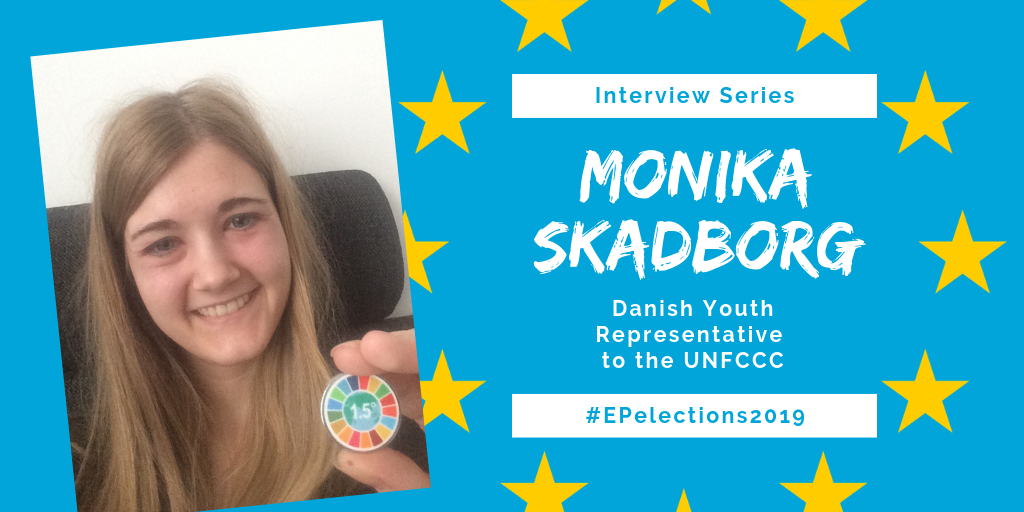
Monika is a Youth Delegate from Denmark and the chairperson of the Youth Climate Council who gives advice to the Danish minister of climate and energy. She also works for the European Student Union and is passionate about how education and youth empowerment can help solve the climate crisis.
Where does your interest in policy, politics and especially the elections to the European Parliament come from? What is your main motivation to engage yourself?
Monika: I got involved in “political” work in high school where I was a part of a small NGO collecting money for education projects in developing countries, and joined an initiative working for more global citizenship in education. This shaped my international outlook and got me interested in how education and international collaboration can be the answers to many of the main global challenges the World is facing, especially climate change and environmental destruction. When I learned how few young people actually vote for European elections, I was puzzled, and I still am, why we do not use our power to shape Europe in a direction that better responds to the needs of young people and future generations.
What are your concrete suggestions regarding climate change policy at EU level towards candidates to the European Parliament? What would a candidate need to promise you to make you vote for her/his party?
Monika: The EU as a rich region with a high carbon footprint has a responsibility to take more, and faster, action on mitigation. I believe we should set earlier goals for when to become climate-neutral, we should calculate the climate impact of all political decisions, and we should target more of the EU budget to effective climate action.
What are the “hot” topics regarding climate change in your country? How do they potentially affect the upcoming Elections?
Monika: One of the “hottest” debates is how to improve the climate law to make it stronger, more binding, and more action-oriented. This is a topic that is highly debated in connection with our upcoming national election, and some parties are taking elements from the proposed new climate law and integrating them in their EU policy. This is for example the proposal of starting to calculate the climate impact of all political proposals.
What should young people keep in mind while making their decision in the election to the European Parliament?
Monika: Keep in mind that climate change makes every other issue you might care about worse. It impacts our security, it leads to more refugees, it impacts our health, and it worsens the situation for women, people of color, people living in poverty, and other marginalised groups. Not prioritising tackling climate change leaves a huge bill for the next generation so please vote for someone who takes this problem seriously.
In your opinion, is giving a vote enough?
Monika: No. Giving a vote is important but we need more. Take action in your everyday life. Educate your peers. Talk to your grandparents about the urgency of climate change. Join climate strikes or other campaigns. Write an angry letter to a newspaper. Every action counts and if we all do it, we can really change the political situation and get this problem solved.
Thank you for the interview!